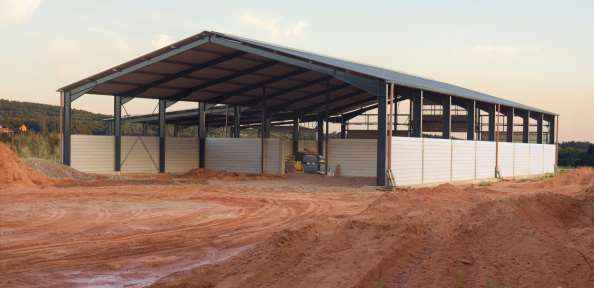“We will be moving forward with common-sense amendments to the Manitoba Building Code that more closely align with other western Canadian jurisdictions to ensure protective measures are in place that also reflect unique issues related to farm buildings and the farming industry,” Eichler said in a statement.
The changes will apply to all farm buildings over 600 metres. They include:
- establishing a ‘low-human occupancy’ building classification for most types of farm buildings, which will recognize lower risks by reducing additional regulatory requirements for items like full fire alarm systems;
- focusing on ways to prevent fires from spreading to neighbouring buildings, while still allowing these low-human occupancy buildings to be grouped together to meet operational needs;
- applying only structural requirements for unenclosed farm buildings used for hay storage or livestock shelters;
- removing requirements for fire-rated separations in high-humidity environments where the building materials are unsuitable, or in areas where animals are likely to cause damage to them.
- providing more options to meet entrance and exit requirements;
- allowing flexibility in the direction of door swing to meet operational needs;
- allowing flexibility in requirements related to covering foamed plastic insulation in high-humidity vegetable storage facilities such as potato storage sheds; and
- adjusting emergency lighting requirements to be responsive to the needs of poultry and egg producers.

Eichler said the government’s commitment to altering the building code will reduce the red tape that can come with constructing farm structures. The Canadian Federation of Independent Business is currently celebrating Red Tape Awareness Week to shed light on some of the issues facing Canada’s entrepreneurs.
Members of Manitoba’s ag community see the building code amendments as a way to give the province’s farmers an edge.
“We will now become more competitive with producers in other jurisdictions, where building costs for barns are lower because they don’t have this excess regulation,” Dan Mazier, Keystone Agricultural Producers president said in the release. “We look forward to working with the province, not only to reduce costs, but also to ensure the safety of farmers, employees and animals.”
Farms.com has reached out to farmers in Manitoba to get their thoughts on the new changes and how these revisions could impact their decisions to erect new buildings.